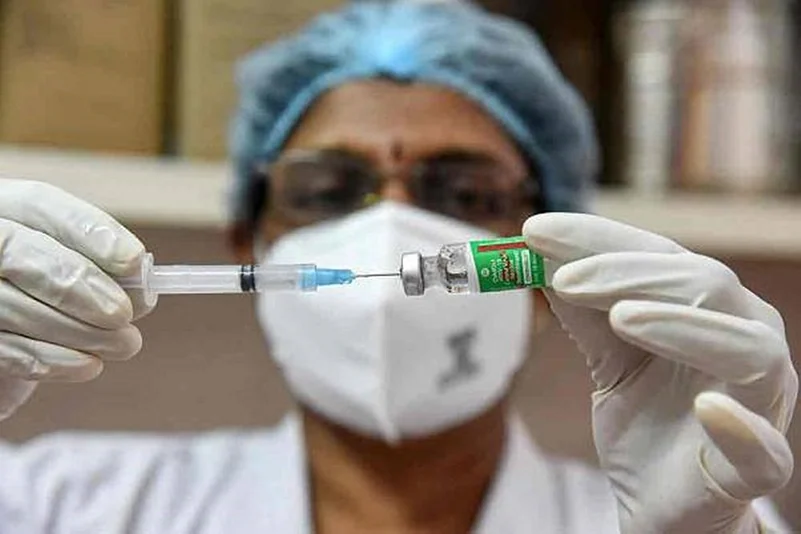More than a year ago, the SARS-COV-2 virus sent the world into a bubble. Caught by surprise, there was little or no preparation to meet this challenge that lied ahead of us. Uncertainty, panic, and chaos ensued – health systems were ravaged & countless people lost their lives. In hindsight, this could have been entirely preventable had we been prepared.
One year later, while the virus is still circulating in our communities, we know so much more now. Thanks to the biggest health information campaign that was unleashed on us.
The world is slowly but gradually bouncing back and science has given us another chance. Cases are on a decline, however, sporadic outbreaks have led governments around the world to continue to enforce fundamental public health measures.
At the same time, the focus shifted on the development of vaccines early. The race has fast-tracked efforts. Scientists have developed vaccines in record time and more than 250 vaccine candidates are in different stages of development globally. India, too, has already approved and rolled out Covishield and Covaxin for emergency use and many more are on the horizon. And here is where we have hit a bump, expectedly so. Vaccine hesitancy – notorious words commonly associated with inoculation drives - has been cited by WHO as one of the top 10 global health challenges.
Vaccine hesitancy and its various facets
There is no denying that immunization is one of the most successful and cost-effective means to help children grow into healthy adults. But with any large-scale immunization programme, hesitation and fear always follow. A World Economic Forum survey released in November 2020 indicated a growing reluctance among people to receive a vaccine, despite progress made by numerous pharmaceutical companies and international organizations. Another meta-analysis study by the British Medical Journal found that only 68.4 per cent of the population is willing to receive Covid-19 vaccination globally. That is a low figure considering vaccines can eradicate diseases and save lives. So, what makes it difficult and how can we tackle this lack of confidence among people? How do we fully convert favourable intent into action?
The answers can be found in comparing immunization coverage of other diseases. As per estimates released by WHO and UNICEF on immunization- nearly 1 in 10 infants did not receive any vaccination in 2016. This means infants missed the first dose of the DTP/Pentavalent vaccine putting them at serious risk of these potentially fatal diseases. Another survey by WHO in 2014 revealed that among the 1 lakh parents (of children who were not vaccinated) interviewed, 33% had no idea about the vaccination, and another 30% only knew about the Adverse Events Following Immunization (AEFI). That means almost 63% of parents either knew nothing about the vaccines or were only awareness only about AEFIs.
Government response to tackle vaccine hesitancy
Given the severity of the pandemic, with 2.5 million deaths reported worldwide, vaccines are the only effective solution that can be deployed against Covid-19. India’s vaccine rollout has kicked off to a good start with a total of more than 1.4 crore vaccination doses as of March 1, 2021. However, the country has been witnessing hesitancy from unexpected quarters for the first time i.e., the doctor, the health-worker creating a bit of a double-whammy situation. Such a development can have further implications on the vaccine coverage of the larger population, especially when there are few takers among the ones who save lives. The apprehension it seems has been attributed to lack of vaccine efficacy data, questions on safety, quick clinical trials to reported deaths among the elderly and sick population.
To combat this misinformation, the Indian government has stepped up efforts to quash wrongful claims made and has conducted regular press conferences, led by the Union minister for health and family welfare, Dr Harsh Vardhan himself. Messages such as “Let us put a STOP to these falsehoods” and “Truth is powerful and shall prevail” have been disseminated to ensure its acceptance and uptake in a timely, accurate and transparent fashion. Eminent physicians from well-known private and public hospitals have also taken vaccine shots to boost public confidence. Pharmaceutical companies have released factsheets addressing concerns and an extensive communications campaign is being undertaken on social media platforms to ensure the right information reaches people. In addition to this, development partners have been roped in to spread the awareness about Covid-19 vaccine. I must emphasize here that all Covid vaccines are almost 100 per cent efficacious in preventing Covid deaths, severe Covid disease and complications.
Lessons from large scale immunization programmes
So much can be learnt from our successful Polio Eradication and Mission Indradhanush initiatives. Case in point, during 2002, when Uttar Pradesh alone harboured 65% of global polio cases and vaccine hesitancy was at its peak, UNICEF’s induction of an army of social mobilisers in Uttar Pradesh and Bihar states helped mitigate fears.
Similarly, while designing Mission Indradhanush in 2014, behaviour change communications was put at the centre-stage of immunization planning. The campaign converted a routine immunization into a Jan Andolan – people’s movement. It mobilized communities to deal with barriers to seeking vaccines. This was achieved through a sustained coordination effort led by the ministry of health with 12 different ministries.
India is on the right path with the recent decision to open the vaccination drive for the general public and speed up private sector participation. While developed countries like the United Kingdom, United States, and France etc. are still struggling with either strict lockdowns or a health system operating under tremendous pressure, India on the other hand has done tremendously well by focusing on preventive measures such as an early lockdown, that also provided a window to establish robust health systems to contain the virus and manage largescale Covid-19 patients. As a result, the country has seen a drop in the number of cases and deaths considerably. Therefore, India is in a much better situation to fast track the vaccination drive to achieve herd immunity and prevent the second wave of infections.
As the third phase closes in, it is vital that we draw inspiration from our past lessons as we move to vaccinate our priority population. Behaviour change communications must be heightened before the vaccine reaches the common man. Mass media (which include radio, television, billboards, print material, and the internet), interpersonal channels and community mobilization must be optimized to advertise and achieve the desired outcomes. There is a need for the active involvement of people from all strata of the society ---- local community leaders, associations, private sector, celebrities, religious groups, experts, and political leaders. It will not only keep misinformation at bay but find acceptance among all. Let people take the lead here. With more evidence pouring in, the vaccine hesitancy among the healthcare providers is bound to evaporate soon.
(The author is a former joint secretary at the ministry of health & family welfare. Views expressed are personal, and do not necessarily reflect those of Outlook Magazine)

















